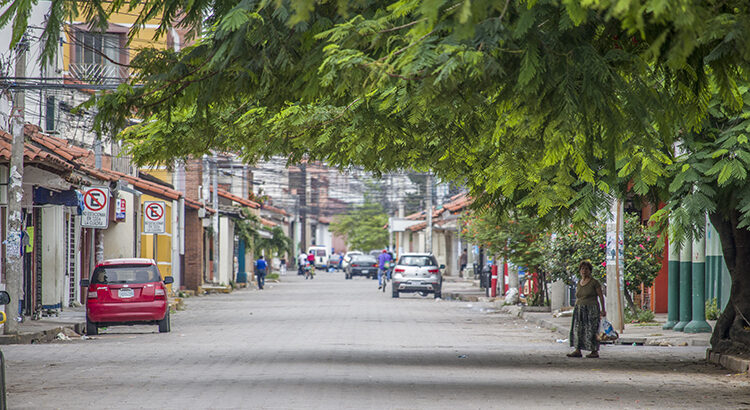In November, President Luis Arce in Bolivia faced one of the most turbulent moments of his government. In response to the postponement of the Population and Housing Census (initially scheduled for 2022) to 2024, mass protests in the country’s lowland region and the economic powerhouse of Santa Cruz effectively shut down Bolivia’s largest city. The strike was promoted by Governor Luis Fernando Camacho, who in 2019 led the movement that overthrew Evo Morales. The demand was to carry out the census in 2023 and request the redistribution of economic resources and parliamentary seats before the 2025 elections.
The purpose of any census is to generate statistical information on the structure of the population, so that it serves as a basis for the elaboration of public policies. In the case of Bolivia, the census has a direct impact on two aspects: the allocation of parliamentary seats and the redistribution of tax co-participation resources among the subnational entities. These questions are of particular relevance in contemporary Bolivia because of the territorial configuration of the political struggle: Santa Cruz is not only the department with the highest population growth, but also the main pole of opposition to the central government in the highland city of La Paz. The Movement Toward Socialism (MAS), which controls the central state, is a left-wing party with its main constituencies in the popular and indigenous sectors of the country’s highland region. The department of Santa Cruz, on the other hand, hosts a strong, conservative regionalist movement and is governed by Luis Fernando Camacho, who was a key figure in the mass protest that contributed to the toppling of President Evo Morales (MAS) following the contested elections of October 2019. According to the projections of the National Institute of Statistics (INE), it is estimated that the population of Santa Cruz grew by 25% since 2012 and that it currently registers some 3.5 million inhabitants, that is, close to 30% of the national population. This would mean that the department could receive 28% more economic resources and that its 28 seats in the Legislative Assembly would increase by at least 3 to 5. Now, postponing the census from 2022 to 2024 meant that Santa Cruz would lose this additional income for two more years and that the new distribution of parliamentary seats might take effect only after the 2025 general elections. This served as an incentive to reactivate the Santa Cruz regionalist movement and update its historical struggle with the MAS government.
The Census Postponement
The conflict began in July, when Arce’s government issued Supreme Decree 4760 to postpone the census to May or June of 2024. This decision was supported by a meeting of the National Council of Autonomies, which was attended by all the governors and mayors, with the exception of Camacho, governor of Santa Cruz. The alleged reasons were delays derived from the impact of COVID, cartographic updating, the incorporation of native languages, and the effect of weather conditions, among others. In response, the Santa Cruz Governor’s Office, the Departmental Legislative Assembly, the Santa Cruz Mayor’s Office, the Municipal Council, the Civic Committee and the Gabriel René Moreno Autonomous University decided in a meeting to set up the Inter-institutional Committee. Starting on October 22, a massive council organized by the Committee decided to declare an indefinite strike under the slogan “CENSUS 2023”. On the eve of the strike, the Arce government offered to guarantee the redistribution of resources in 2024, which was rejected by Santa Cruz. Days later, a national meeting of authorities from the autonomous entities reaffirmed that the redistribution of resources and also of seats would be applied in 2024, but referred the question of the specific date for the census to a Technical Commission. This Commission defined that the census would take place on March 23, 2024. Arce ratified the decision through Supreme Decree No. 4824, which also incorporated the plan to redistribute resources in September 2024. The issue of parliamentary seats, however, was not incorporated because it is the responsibility of the Legislative Assembly. This proposal was once again rejected by the Santa Cruz block, obstinate in carrying out the census in 2023, despite the fact that, in both cases, the distribution of seats and income would come into effect in the same year. Finally, after 22 days of strike, the Committee accepted the date of March 2024, demanding a guarantee law, which was approved 14 days later, which advances the census by two months and ratifies the content of the initial government proposal before the strike, now including the incorporation of the redistribution of seats within the Law.
Cohesion and Leadership at Stake
Basically, the conflict over the census is part of several successive struggles for hegemony, which began in 2019, when the Santa Cruz bloc led a national mobilization against an alleged fraud in the general elections, which ended up overthrowing Evo Morales. Since then, the dispute has intensified, with the particularity that at this moment there are important secondary tensions that directly affect the general results.
On the one hand, within the conservative regionalist movement in Santa Cruz, the conflict was aimed at strengthening its internal coherence and revitalizing its leadership, considering that Governor Luis Fernando Camacho was seriously questioned about corruption allegations in the departmental government of Santa Cruz. The demand for “Census 2023” was based on three fundamental pillars: a) the postponement of the census constituted another affront of centralism against Santa Cruz; b) its implementation will directly improve the living conditions of the population; and c) it will serve to make transparent and modify the electoral roll. However, tensions soon arose between a moderate current, headed by university director Vicente Cuellar, and a radical trend, led by Camacho and the president of the Civic Committee, Rómulo Calvo. This caused the movement to adopt an erratic behavior, characterized by promoting the radicalization of the people, but also by not having a solvent technical proposal in the public opinion nor having relevant allies at the national level. Hence, the slogan “Census 2023” fell apart when it became visible that the problem was not the date of registration but of the processing of the results. After 25 days, with its capacity for mobilization exhausted, the Committee convened a massive town hall of more than a million people. It resolved to carry out the census in 2024, with a confused speech by Rómulo Calvo, president of the Civic Committee, that demanded a law of guarantees, and simultaneously threatened to “redefine the relations of Santa Cruz with the Bolivian State”. The strategy was not good either, considering that the opposition lacks a majority in parliament and is also divided to the point that it presented 5 different bills. In addition, the ambivalence of the leadership exacerbated the spirits of a population mobilized for 36 days, which ended up turning its radicalism on the Committee itself. The house of the president of the Civic Committee was attacked on two occasions since the start of the strike.
A Lose-Lose Situation
In the end, after 36 days of strike, everyone lost. The Committee obtained a disgraceful defeat, which did not derive from the government’s victory, but stemmed from its own bolstering of a radicalization, which it could not handle after all – even in minimal matters such as guaranteeing internal coherence between the slogan and the demand. Although the MAS was eventually able to settle the problem (for the time being), it is clear that the government’s capacity for public management has been called into question and that Arce’s leadership role, which was previously on the rise, has fallen resoundingly. A recent survey that assesses the performance of political actors after this conflict, confirms that the approval of the President at the national level decreased from 47% to 35%. Meanwhile the approval of Luis Fernando Camacho, in Santa Cruz, fell from 63% to 36%. Perhaps the most important novelty, at the departmental level, is the strengthening of the figure of Vicente Cuellar, responsible for the political negotiation between the central government and Santa Cruz, who obtained more than 65% approval. This political scenario denotes that, despite radicalization, people sanction intransigence and little capacity for resolution. For now, it is clear that the struggle between the MAS government and the Santa Cruz bloc will continue to be open and will develop around new issues. These include the judicial elections (scheduled for 2023), the demand for a new “fiscal pact”, which is the way that resources are distributed between regions, and the implementation of the census results themselves, among others. In the end, these conflicts will underpin the political forces and future leaders who will contend in the general elections of 2025, which are the horizon that everyone is already aiming for.


